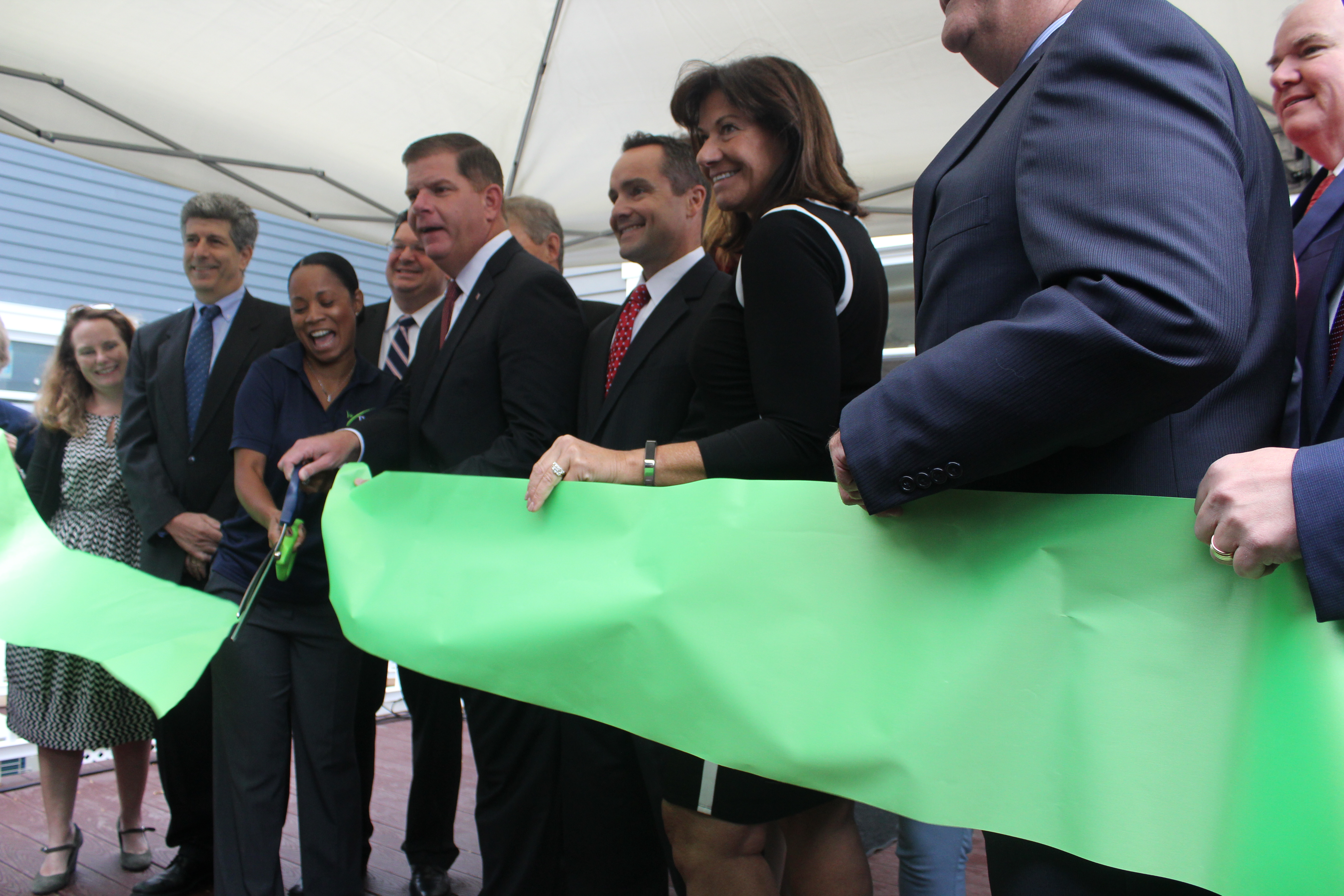Mayor Walsh attends the opening of a new transitional shelter run by Bridge Over Troubled Water, an organization that helps homeless youth.
On Tuesday, Oct. 10, the City of Boston announced it is searching for a consultant to assist its efforts to end youth homelessness. The new consultant will be responsible for gathering data, assessing the current system’s capacity and gaps in services, and identifying the needs of homeless youth.
According to the contract terms listed in the Request For Proposal (RFP), the consultant could be paid up to $130,000 for a one year contract.
The ultimate goal is to create a coordinated system of youth services, similar to the system that now exists to help homeless adults find the services that best fit their needs. The consultant will also work with the Youth Homeless Leadership Team. The Team, originally established in 2016, is a mix of city, state, and private organizations like the Boston Department of Neighborhood Development, Boston Public Health Commission, Bridge Over Troubled Waters, Pine Street Inn, and the Massachusetts Commission on Unaccompanied Youth.
“As we continue to make strides, Boston’s youth are not forgotten,” Mayor Marty Walsh said in a press release. “Youth services are a patchwork of programs across city, state and private lines, and this means there needs to be a coordinated plan in place. Our [request for proposals] moves Boston closer to ensuring each and every one of our young people has a stable home that allows them to work towards a better life.”
The results of the most recent Youth Count in Massachusetts found 516 homeless people identified as an accompanied homeless youth—homeless folks under 24. The most common reasons for young people to leave home, the survey found, was family conflict. The 18 to 24 demographic in particular can be difficult to service. They are too old for childhood services but often too young for the culture at adult shelters, which have a much older population. Additionally, 40 percent of homeless youth identify as LGBT, a higher rate than homeless adults.
The release also included a statement from Kelly Turley, Associate Director of the Massachusetts Coalition for the Homeless. “We know that thousands of young people across Boston and the Commonwealth are experiencing homelessness, housing instability, and related trauma,” Turley said. “By thoughtfully engaging young people, providers, advocates, community members and government officials, Mayor Walsh and Boston can serve as leaders in getting to the root causes of youth and young adult homelessness and in bringing the needed housing resources and supports to scale to end the crisis.”
This new step in Mayor Walsh’s initiative to end homelessness in the city comes two years after he announced Boston had ended chronic veteran homelessness. As part of the Boston’s Way Home Initiative, Mayor Walsh has set a goal of ending chronic homelessness by 2018.
The phrase “ending homelessness” doesn’t actually mean the end of homelessness. People will still be in shelters and on the street. The term describes a “functional zero,” which, according to the U.S. Department of Housing and Urban Development, means a community has fewer homeless people than the average number of homeless clients they house or connect to housing.
Since 2016, the city has housed 850 homeless veterans and 391 chronically homeless individuals.
The announcement also follows the end of a budget dispute between the governor and the state legislature over a $675,000 cut in funding for youth homelessness programs. Governor Charlie Baker vetoed funding for these programs and other youth services when signing the Fiscal Year 2018 budget, but the Senate eventually overrode the measure.
Anyone interested in the consultant position can find the Request for Proposals package online at www.cityofboston.gov/Procurement.

Leave a Reply
You must be logged in to post a comment.